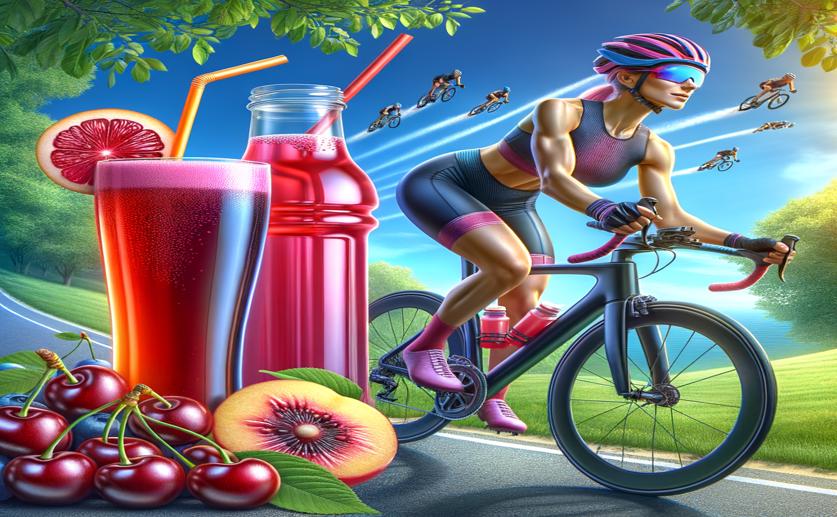
How Tart Cherry Juice and Sports Drinks Affect Cycling Performance and Recovery
Jenn Hoskins
15th August, 2024

Image Source: Natural Science News, 2024
Key Findings
- The study by the University of Saskatchewan found no significant difference in cycling performance between tart cherry juice and a high-glycemic index sports drink
- Both beverages showed similar effects on muscle soreness, maximal voluntary contraction, and low-frequency fatigue, with no superior benefit from tart cherry juice
- The findings suggest that tart cherry juice may not enhance performance or recovery in all exercise types, highlighting the need for further research
References
Main Study
1) The effect of tart cherry juice compared to a sports drink on cycling exercise performance, substrate metabolism, and recovery.
Published 14th August, 2024
https://doi.org/10.1371/journal.pone.0307263
Related Studies
2) Efficacy of a tart cherry juice blend in preventing the symptoms of muscle damage.
Journal: British journal of sports medicine, Issue: Vol 40, Issue 8, Aug 2006
3) Montmorency cherry juice reduces muscle damage caused by intensive strength exercise.
4) Effect of Tart Cherry Concentrate on Endurance Exercise Performance: A Meta-analysis.



 10th August, 2024 | Jim Crocker
10th August, 2024 | Jim Crocker